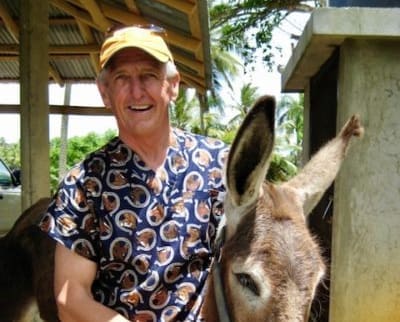
Horsepower with Heart: Unveiling the World of Equine Well-being
Horsepower with Heart: Unveiling the World of Equine Well-being
The Intersection of Equine Welfare and Sport: A Conversation with Dr. Jay Merriam
In this post we’re delving into the intriguing world of equine welfare and sports. As a lifelong equestrian enthusiast, I’m passionate about all aspects of equine history, welfare, and their broader significance in our lives.
A Victory for Donkeys in Africa:
An uplifting story recently emerged from Africa, where a new law has banned the sale and slaughter of donkeys for their skins, a practice driven by the Chinese market for traditional medicine. This significant change is a win for the communities whose livelihoods depend on these working animals.
Dressage Community
In contrast, the dressage community has been rocked by allegations of abuse and mistreatment of sport horses in private facilities.
Introducing Dr. Jay Merriam:
Joining us to shed light on these issues is Dr. Jay Merriam, a respected figure in equine veterinary medicine and co-founder of the Equitarian Initiative. With his extensive experience in equine welfare, Dr. Merriam offers a unique perspective on the challenges facing both working and sport horses.
Dr. Merriam’s Insights:
– Equine Athletes and Welfare: Dr. Merriam shares his expertise on what constitutes an equine athlete and the welfare concerns unique to different sports like dressage and show jumping.
– Breeding and Training Challenges: The conversation delves into the ethical dilemmas surrounding the breeding and training of young horses, especially in the context of economic pressures in the sport horse industry.
– Education and Awareness: A key theme of the discussion is the importance of education and awareness among horse owners, trainers, and veterinarians. Dr. Merriam emphasizes the need for a deeper understanding of equine behavior and welfare.
– Global Perspective on Equine Welfare: Drawing from his work with the Equitarian Initiative, Dr. Merriam highlights the lessons that can be learned from working equids in developing countries and how these insights can be applied to improve practices in the sport horse world.
Conclusion:
This enlightening conversation with Dr. Jay Merriam underscores the complex and often overlooked aspects of equine welfare, both in the realms of sport and work. As we continue to engage in these critical discussions, we hope to foster a deeper understanding and compassion towards these magnificent creatures that play such an integral role in our lives.
For more discussions on meaningful topics, follow us on Instagram at @inscapequest. Your shares, subscriptions, and feedback are greatly appreciated. Until next time, take care and stay connected.
© Trudi Howley M.S., SEP, LPCC, CPC is a Somatic Psychotherapist and Certified Professional Coach, specializing in trauma healing.
Disclaimer: The Post is about equine welfare. It contains references to recent public allegations about the abuse of dressage horses. The participants in this discussion have no personal knowledge as to the truth or falsity of any of these allegations and nothing in this podcast is intended to comment on or should be interpreted as commenting on the truth or falsity of any allegation.




